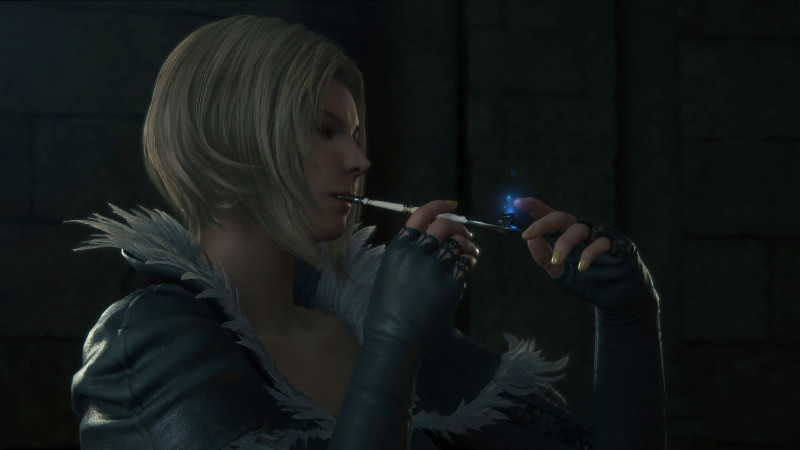Products You May Like
Final Fantasy XVI will be the first mainline-numbered Final Fantasy game with a Mature rating. The presumption might be that developer Creative Business Unit III wanted this game to have more violence to accompany its new action-heavy combat, but that’s not the case. The team put little thought into the rating – it just came naturally, according to various members of CBUIII I spoke to for our FFXVI cover story.
“We actually get this question kind of a lot – people ask us if the rating went up because [we] wanted to make a more violent game, and the answer to that is no,” producer Naoki Yoshida says. “On the outside, it doesn’t appear [the rating system] has changed. You still have your E, you still have your Teen, and you still have your Mature. The problem is that over the years, as more games have come out and as we move forward, the regulations within those have actually changed a lot.”
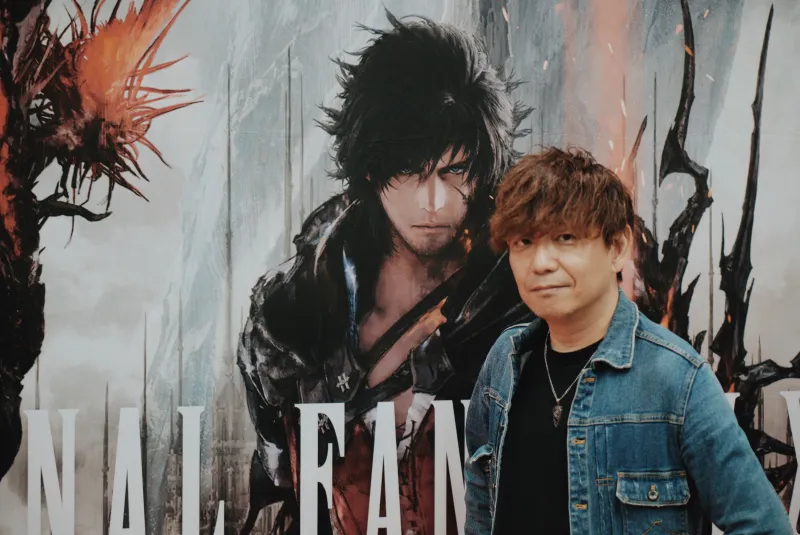
Final Fantasy XVI Producer Naoki Yoshida
Yoshida says the team understands these ratings are ultimately meant to protect children from sensitive content, but it’s still more restrictive to what a studio can do in a game. He says before, studios could do “much, much more,” but now, “we’re finding ourselves not able to do as much to get the same rating we did before.” One example he gives is that it’s okay to kill a zombie violently today, but if that character is a human, you’ll push the rating more. Suppose someone’s getting pierced with an arrow, Yoshida says that will no longer be allowed with a Teen rating – it will immediately take you to the M rating “because it’s too realistic now” in instances where games are pushing for higher-fidelity visuals.
He also brings up the differences in rating systems between different world regions. Ultimately, though, CBUIII made the game it wanted to.
“We wanted to create something that was based in reality, that felt really real, and talk about complex and violent themes such as war,” Yoshida says. “You can’t have a war without certain imagery. Clive is in the trenches, he’s fighting for his life, he’s covered with dirt and blood. Once you start limiting that when you’re trying to create something that’s very real […], it takes the player out of the reality and makes it feel more like a game. That’s what we didn’t want to do. So rather than maintaining the Teen rating, which would have limited a lot of the things that we could do and [what we] show in cutscenes, the Mature rating allows us to tell the story that we wanted to in the way we want to tell it.
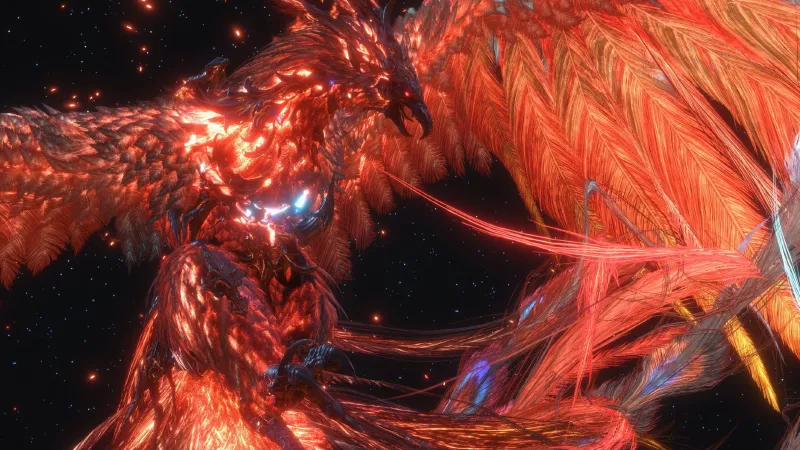
“We’re not going out of our way to create content that’s violent or sensationalist. We just wanted to create […] the story that we wanted to tell that’s going to feel real and the story that’s going to resonate best with players without hiding anything. It’s by allowing ourselves that Mature rating [that we’re allowed] to not hold back and tell the story we want to tell.”
I ask Yoshida if he and CBUIII were worried about pushback from Square Enix since a Mature rating could theoretically limit the player base. He says it wasn’t a big deal, joking that perhaps he’s not as fearful of his corporate overlookers as he should be. But ultimately, he said Square Enix understood why the team needed to be free from rating restraint with FFXVI. It certainly doesn’t hurt that Yoshida is on Square Enix’s board of directors, who are the ones he had to break the news to, either.
Director Hiroshi Takai echoes Yoshida’s thoughts, citing that the Mature rating has “allowed us to be able to […] show more now that there are fewer restrictions to our narrative and the way we tell our story.”
“The Final Fantasy series has always been about trying to get as many people to play the game as possible, and that’s why historically, this series has aimed for the lower ratings – like the Teen – to get the game into the hands of as many players as possible.”
He says in the past, that was a lot easier because of hardware restrictions. But as consoles become more powerful, visuals become more lifelike, and getting a lower rating is more challenging.
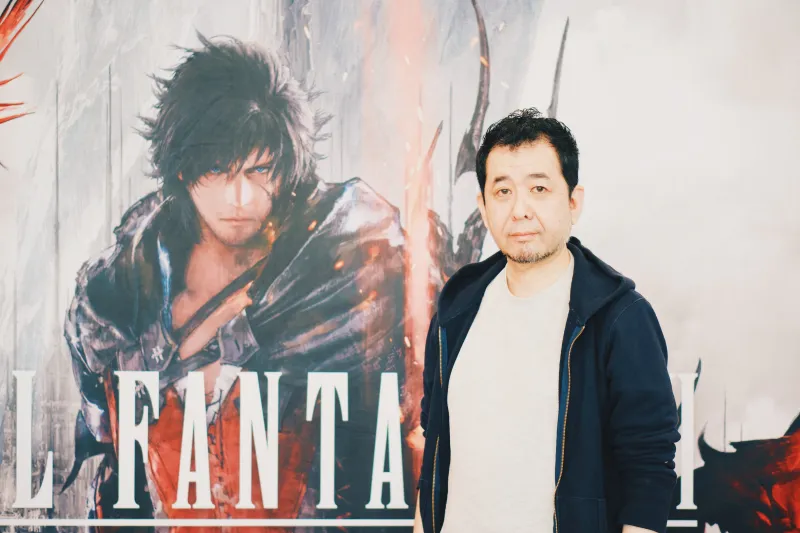
Final Fantasy XVI Director Hiroshi Takai
“With the new generations of hardware and the visuals becoming more and more realistic, if you want to tell a story that feels real, it also needs to look real,” Takai says. “By showing the [realistic] visuals, it’s hard to keep that within the realms of a lower rating because it becomes so visceral, and I think you can see this trend since the PlayStation 2 and PlayStation 3 when graphics became a bit more realistic.
“By moving up to a higher rating, it allows us to tell the story we want to tell without having to fake it. If you’re trying to tell a story about war, but you can’t show blood, it’s not going to be realistic.”
Takai reiterates CBUIII isn’t using the Mature rating to make FFXVI hyper-violent – it just helps the team maintain a “real feel.”
Localization director Michael-Christopher Koji Fox says the Mature rating allowed him to expand on dialogue as “there are certain words that will kick you from a Teen rating to a Mature rating, and if you’re stuck with a Teen rating, you have to avoid those types of words, even if the character seems like a character that would use those types of words.”
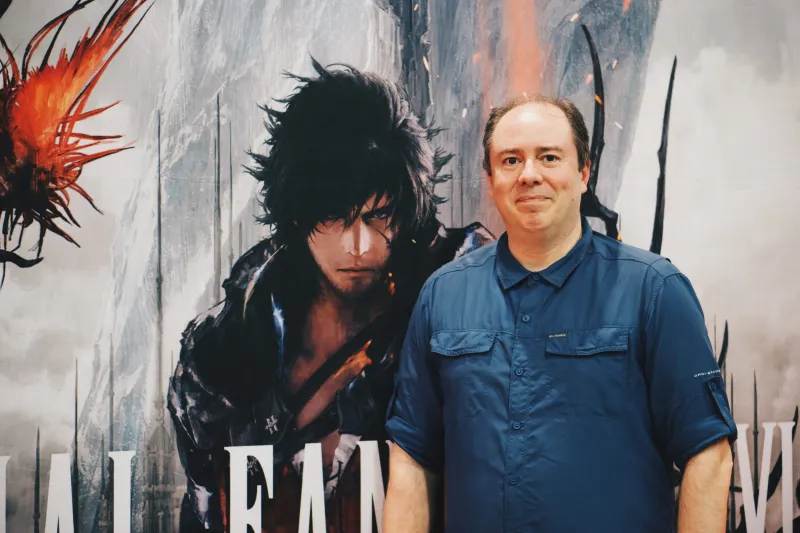
Final Fantasy XVI Localization Director Michael-Christopher Koji Fox
He says if you get the sense a character is avoiding words they’d likely say, that character doesn’t feel natural anymore, which is something the Mature rating allowed CBUIII to avoid.
“Like it or not, a lot of people in the world swear, and it’s part of how they communicate,” Koji continues. “To have a whole world where no one swears at all, it just doesn’t feel like a real world.” He adds this doesn’t mean every character will swear, though – there are people in the real world who don’t, after all.
“While Clive will use [swear words and Mature language] every now and then, we tried to make it in situations where it fits, like, ‘Oh, a giant boulder is coming towards me.’ Of course, they’re going to say, ‘S—!’ But then he’s not using it in everyday conversation because that’s not Clive’s character.”
If you’ve kept up with FFXVI’s trailers, you’ve already heard and seen how that Mature rating appears in the game’s action and dialogue. That rating (and tone) carries through the hours of the game I played for this cover story trip, too, and I can’t wait to see how far this game pushes it this summer.
For more, be sure to check out Game Informer’s exclusive FFXVI coverage hub by clicking the banner below.
